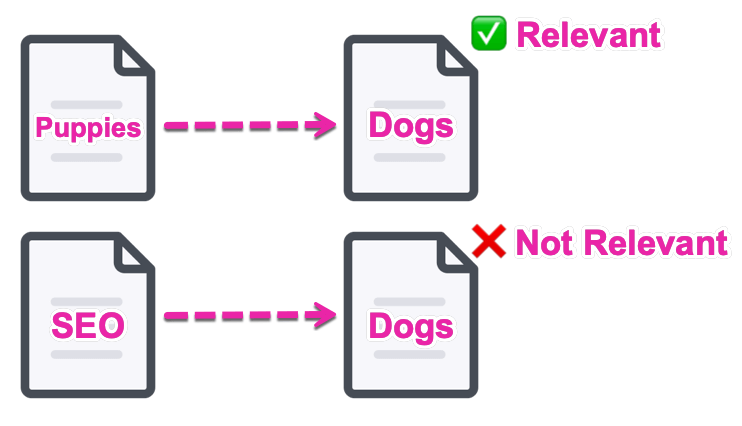In the ever-evolving world of SEO, one element remains crucial to achieving higher search engine rankings: link building. As search engines like Google continuously refine their algorithms, link building continues to be a cornerstone in determining a website’s authority, relevance, and trustworthiness. Understanding the power of link building and its impact on search rankings is essential for businesses and marketers aiming to improve their online visibility.
In this comprehensive guide, we’ll explore how link building works, why it’s important, and the best strategies for maximizing its potential. We’ll also address common challenges and misconceptions associated with link building, providing actionable advice to enhance your SEO strategy.
What Is Link Building?
Link building is the process of acquiring hyperlinks from other websites to your own. These hyperlinks, or “backlinks,” serve as pathways that allow users to navigate between different pages on the internet. For search engines, backlinks act as votes of confidence in the quality and relevance of your content. In essence, when reputable websites link to yours, it signals to search engines that your site is trustworthy and authoritative.
Types of Links
Before diving deeper into how link building impacts search rankings, it’s important to understand the different types of links:
- Inbound Links: Also known as backlinks, these are links from external websites pointing to your website.
- Outbound Links: Links from your website to external sites, which help provide context or additional resources to your readers.
- Internal Links: Links between pages on the same website, which help improve navigation and spread “link juice” across your domain.
While each of these plays a role in your overall SEO, backlinks are especially critical in influencing search rankings.
How Link Building Impacts Search Rankings
1. Authority and Trustworthiness
Search engines, particularly Google, place significant weight on a website’s authority and trustworthiness. Backlinks from reputable, high-quality websites serve as endorsements of your site’s content. The more authoritative the linking website, the more weight that backlink carries. Websites with a strong backlink profile are more likely to rank higher in search engine results pages (SERPs) because they appear credible and valuable to users.
Example: If a well-known news outlet or a respected industry blog links to your website, Google interprets this as a signal that your content is valuable, which can boost your rankings.
2. Relevance of Links
It’s not just about getting any backlink; the relevance of the linking site to your content matters significantly. A backlink from a site that shares your niche or is related to your industry carries more weight than one from an unrelated website. For example, a link from a technology blog to your tech startup is far more valuable than a link from an unrelated food blog.
Google uses this relevance factor to assess the context of the backlink, ensuring that the link adds value and is not simply there for SEO manipulation.
3. Dofollow vs. Nofollow Links
Not all backlinks are created equal. There are two primary categories of backlinks:
- Dofollow Links: These pass SEO value, or “link juice,” to your website, helping improve your rankings.
- Nofollow Links: These don’t pass SEO value but can still drive traffic and improve visibility.
While dofollow links are the gold standard for improving search rankings, nofollow links still offer benefits in terms of brand exposure and referral traffic.
4. Diversity of Links
Google rewards websites that earn backlinks from a variety of sources. Having backlinks from numerous domains shows that your content appeals to a wide range of websites, which can boost your credibility. If all your backlinks come from just a handful of sites, search engines may view this as a sign of manipulation. A healthy mix of backlinks from different types of domains is more likely to yield better search rankings.
5. Anchor Text Optimization
The anchor text—the clickable part of the hyperlink—also plays a key role in how link building impacts search rankings. Anchor text helps search engines understand the content of the linked page. Using keyword-rich anchor text can signal relevance to search engines, but over-optimizing (using exact match keywords excessively) can result in penalties. It’s important to maintain a natural balance of branded, generic, and keyword-rich anchor texts.
6. User Experience and Traffic
Backlinks do more than just improve your website’s search engine ranking. They can also drive referral traffic, exposing your site to new audiences. A well-placed backlink on a high-traffic website can generate significant visits, increasing user engagement, session duration, and possibly conversions. Google rewards websites that provide positive user experiences, further boosting your rankings.
7. Link Velocity
Another critical factor is the rate at which you acquire backlinks, commonly referred to as link velocity. Acquiring too many backlinks too quickly, especially from low-quality or irrelevant sites, can raise red flags and may result in penalties. A more natural, consistent pace of link acquisition signals to Google that your content is organically gaining traction, which can have a positive impact on your rankings.
Effective Link Building Strategies
Now that we understand how link building impacts search rankings, let’s dive into some of the most effective strategies for building high-quality backlinks.
1. Content Creation and Promotion
The most natural way to earn backlinks is by creating high-quality, valuable content that others want to share. This could be in the form of blog posts, infographics, videos, or research studies. Once you have great content, promote it through social media, email marketing, and outreach campaigns to increase its visibility.
2. Guest Blogging
Writing guest posts for reputable websites within your niche can help you earn backlinks. In exchange for providing valuable content to another site, you typically receive a backlink to your website. This method allows you to build relationships, gain exposure, and acquire relevant links.
3. Broken Link Building
This strategy involves finding broken links on other websites and suggesting your content as a replacement. It’s a win-win scenario: the website owner fixes their broken link, and you gain a backlink.
4. Influencer Outreach
Building relationships with influencers in your industry can lead to organic backlinks. How Link Building Impacts Search Rankings Influencers often share content they find valuable with their audience, and a mention from them can result in high-quality backlinks.
5. Skyscraper Technique
The skyscraper technique involves finding popular content with many backlinks and creating an improved version of it. Once you’ve created better content, you reach out to the websites that linked to the original piece, encouraging them to link to your superior version.
Common Link Building Mistakes to Avoid
1. Focusing on Quantity Over Quality
One of the biggest misconceptions in link building is that more links always equal better rankings. However, search engines prioritize quality over quantity. A few high-quality backlinks from authoritative sites are worth far more than hundreds of low-quality links.
2. Buying Links
Google’s guidelines explicitly prohibit buying backlinks. Engaging in this practice can result in penalties or even de-indexing from search engines. Focus on earning links organically through high-quality content and ethical strategies.
3. Ignoring Internal Linking
While external backlinks are crucial, don’t overlook the power of internal linking. Linking to relevant pages within your website helps search engines crawl and index your site, spreading link equity across your domain.
Conclusion: The Long-Term Impact of Link Building
The power of link building in impacting search rankings is undeniable. High-quality backlinks remain a critical component of any successful SEO strategy, boosting authority, improving user experience, and driving referral traffic. While building a robust backlink profile requires time, effort, and consistency, the long-term benefits far outweigh the challenges.
To succeed in link building, focus on creating valuable content, building relationships with authoritative sites, and following ethical SEO practices. By understanding the nuances of link building and employing effective strategies, you can significantly enhance your website’s visibility and rank higher in search engine results.










